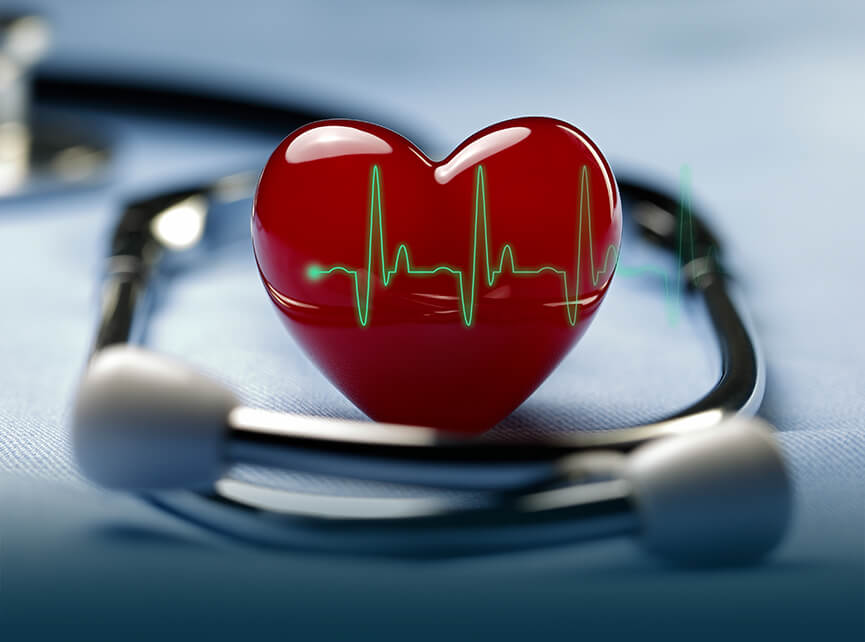The evolving science of Cardiology and its real-world benefits
The evolving science of Cardiology and its real-world benefits
Blog Article
Understanding the Significance of Cardiology in Modern Medical Care Providers
Cardiology plays a critical role in modern medical care, specifically as heart problem proceeds to be the leading source of death worldwide. Advancements in diagnostics and treatment have transformed individual care, allowing earlier interventions and boosted end results. The shift towards preventive cardiology empowers people to manage their health proactively. As innovation continues to advance, the assimilation of cutting-edge solutions might additionally redefine cardiology's influence on public wellness, triggering a more detailed assessment of emerging patterns and their ramifications.
The Frequency of Heart Condition and Its Effect On Public Health And Wellness
Heart disease continues to be the leading cause of fatality internationally, its impact expands far beyond individual patients to affect public health and wellness systems and economies. The high frequency of heart problem positions a substantial strain on medical care resources, necessitating boosted financing for avoidance, recovery, and treatment programs. Public health and wellness initiatives need to deal with risk elements such as obesity, cigarette smoking, and less active lifestyles, which contribute substantially to the climbing occurrence of heart conditions.Moreover, the financial worry related to heart condition is tremendous, including not just direct medical prices however likewise indirect expenses associated with lost efficiency and early death. Communities deal with challenges in handling these expenses, frequently leading to differences in health care accessibility and results. As the populace ages and lifestyle-related dangers remain to intensify, the necessity for efficient cardiology treatments ends up being extremely important. Subsequently, addressing heart condition is not only a matter of private health and wellness however likewise an essential public health priority.
Developments in Cardiac Diagnostics and Imaging Techniques
Recent improvements in cardiac diagnostics and imaging methods have actually revolutionized the area of cardiology, improving the ability to monitor and discover heart problem. Techniques such as heart MRI, CT angiography, and echocardiography have actually ended up being progressively advanced, offering comprehensive photos of cardiac frameworks and functions. These techniques enable the early recognition of problems like coronary artery illness, cardiac arrest, and valvular disorders.Moreover, advancements in non-invasive diagnostics, such as wearable innovation and remote tracking devices, have actually equipped clients and doctor. These tools assist in real-time tracking of heart rhythms and other vital indicators, bring about timely treatments. Furthermore, expert system is being integrated right into imaging analysis, boosting accuracy and effectiveness in diagnosis.
Advancements in Therapy Choices for Heart Conditions
Current developments in cardiology have actually led to substantial technologies in treatment options for heart problems. These consist of sophisticated medical strategies that improve procedural end results and emerging medications that use new opportunities for therapy. As the area progresses, these technologies play a crucial duty in boosting person treatment and outcomes.
Advanced Surgical Techniques
Technologies in medical techniques have actually transformed the landscape of cardiology, using brand-new expect patients with heart conditions. Minimally intrusive procedures, such as catheter-based treatments, have actually significantly reduced recuperation times and healthcare facility keeps. Strategies like robotic-assisted surgical treatment boost precision, permitting surgeons to navigate complex physiological structures with better precision. Improvements in imaging modern technology facilitate real-time visualization during treatments, improving outcomes. Transcatheter aortic valve substitute (TAVR) exemplifies an innovation in treating aortic stenosis, allowing valve substitute without open-heart surgical treatment. In addition, hybrid approaches that integrate medical and catheter-based techniques provide customized services for different heart problems. These innovative surgical methods not only boost individual safety and security however likewise increase treatment choices, highlighting the critical function of technology in modern-day cardiology methods.
Emerging Medicines and Treatments
As the landscape of cardiology proceeds to advance, arising medications and treatments play a crucial role in boosting treatment choices for heart problems. Innovations such as novel anticoagulants and advanced lipid-lowering representatives have transformed the administration of cardio illness, significantly decreasing person morbidity and mortality. Furthermore, the advancement of genetics therapies and regenerative medication supplies appealing methods for dealing with problems formerly considered permanent. Scientific tests are continuously exposing the effectiveness of these treatments, pressing the boundaries of traditional treatments. The integration of electronic health and wellness innovations facilitates individualized medication, allowing for tailored therapy strategies based on genetic and way of life variables. Collectively, these innovations emphasize the vibrant nature of cardiology, enhancing patient outcomes and redefining requirements of treatment in modern-day health care.
The Role of Preventive Cardiology in Client Treatment
Preventive cardiology plays a necessary role in person treatment by concentrating on the recognition of risk variables that add to heart problem. With lifestyle adjustment methods and early discovery strategies, doctor can effectively decrease the occurrence of cardio occasions - Cardiology Jupiter. This aggressive method not just enhances person outcomes yet likewise promotes lasting health and wellness
Threat Variable Recognition
While heart diseases continue to be a leading root cause of morbidity and mortality worldwide, effective risk variable recognition works as a foundation of precautionary cardiology. Recognizing threat variables such as hypertension, diabetes mellitus, family, and hyperlipidemia background is essential for very early intervention. Medical care specialists make use of different evaluating approaches to examine these variables, enabling customized precautionary actions. Additionally, comprehending a person's way of living selections, such as cigarette smoking and physical lack of exercise, better informs risk evaluations. This comprehensive assessment makes it possible for clinicians to create tailored treatment plans aimed at mitigating dangers. By focusing on threat variable identification, healthcare systems can improve person results and lower the general burden of heart diseases, inevitably adding to enhanced public health and wellness methods and source allowance.
Way Of Life Alteration Techniques
A wide variety of research studies highlights the important function of way of living modification methods in decreasing cardio condition danger. These strategies incorporate nutritional adjustments, increased exercise, smoking cessation, and weight management. By embracing a heart-healthy diet regimen abundant in fruits, vegetables, whole grains, and lean healthy proteins, people can decrease cholesterol degrees and high blood pressure. Routine physical task enhances the heart and boosts general cardio health and wellness. In addition, stopping smoking greatly minimizes the danger of heart problem and boosts healing rates for those with status quo. Weight management further adds to cardio health by mitigating other risk factors such as diabetes mellitus and high blood pressure. Applying these lifestyle transforms not only promotes private well-being but additionally serves as a keystone of preventative cardiology in patient care.
Early Discovery Techniques
Lifestyle adjustments considerably add to lowering heart disease risks, but they are most effective when paired with early detection strategies. Precautionary cardiology emphasizes the relevance of recognizing potential heart problems prior to they intensify right into significant conditions. Methods such as high blood pressure tracking, cholesterol screening, and progressed imaging modern technologies like echocardiograms play vital roles in assessing cardiovascular health. Biomarkers and genetic testing likewise boost the accuracy of very early discovery, enabling tailored preventive methods. Routine heart threat evaluations encourage health care suppliers to step in proactively, potentially stopping cardiovascular disease and strokes (Cardiology). By incorporating these early detection techniques right into regular care, people can gain from timely way of life treatments and targeted therapies, inevitably enhancing and improving outcomes quality of life
Integrating Modern Technology Into Cardiology Practices
As innovations in innovation remain to reshape different areas, the combination sites of ingenious tools and systems right into cardiology practices has ended up being crucial for boosting individual care and end results. Telemedicine platforms permit cardiologists to monitor individuals from another location, improving accessibility to care while decreasing the burden on medical care facilities. Wearable gadgets, such as smartwatches, enable constant heart rate surveillance, informing both medical professionals and patients to prospective issues in real-time. Additionally, synthetic intelligence (AI) is being utilized to assess vast quantities of cardiac data, aiding in early diagnosis and individualized therapy plans. Advanced imaging techniques, consisting of 3D echocardiography, boost visualization of heart structures, bring about more precise treatments. Digital health records (EHRs) enhance patient information monitoring, making certain that cardiologists have prompt access to crucial data. With each other, these technical developments are transforming cardiology, promoting aggressive administration and enhanced health outcomes for clients with cardiovascular conditions.
The Significance of Person Education and Involvement
Person education and involvement play a critical role in the monitoring of cardiovascular health and wellness. By furnishing clients with knowledge concerning their problems, therapy alternatives, and lifestyle adjustments, doctor equip individuals to take an active role in their care. This aggressive strategy can lead to improved adherence to recommended drugs, dietary changes, and exercise routines, ultimately lowering the danger of complications.Engagement additionally promotes a strong patient-provider partnership, urging open interaction and trust fund. When patients really feel educated and included, they are more probable to voice problems and ask inquiries, which can cause far better clinical outcomes. Furthermore, instructional sources, such as workshops or electronic systems, can boost understanding and promote self-management methods. Generally, prioritizing individual education and learning and engagement is necessary for boosting cardiovascular health, enhancing lifestyle, and reducing healthcare prices linked with cardiovascular illness.
Future Fads in Cardiology and Their Prospective Influence

Frequently Asked Inquiries
What Way Of Life Modifications Can Minimize Cardiovascular Disease Danger?
The present concern addresses way of living adjustments that can substantially reduce heart problem threat. Dr Garcia. Taking on a well balanced diet plan, engaging in normal physical task, preserving a healthy and balanced weight, taking care of anxiety, and preventing cigarette can significantly enhance cardiovascular health
Exactly How Can I Recognize Very Early Signs of Heart Problems?
Identifying very early signs of heart issues includes surveillance signs and symptoms such as upper body pain, shortness of breath, fatigue, and uneven heartbeat. Prompt awareness of these signs can trigger necessary medical evaluation and treatment for far better end results.
What Are the Differences Between Cardiologists and Heart Surgeons?
The distinctions in between cardiologists and heart surgeons exist in their roles; cardiologists mainly detect and handle heart problems via non-invasive methods, while heart cosmetic surgeons do surgeries to deal with architectural heart concerns. Each plays a crucial, distinctive role.

Just how Usually Should I Get My Heart Wellness Checked?
The regularity of heart medical examination differs based on specific danger factors. Typically, adults need to undergo evaluations each to two years, while those with existing conditions might require even more regular evaluations as advised by health care specialists.
What Duty Does Genetics Play in Heart Condition Threat?
Genes significantly affects cardiovascular disease danger, with familial patterns indicating acquired conditions. Details genes can incline individuals to high blood pressure, cholesterol problems, and various other cardiovascular issues, highlighting the relevance of genetic testing in assessing heart wellness. Heart disease continues to be the leading cause of fatality worldwide, its influence extends much beyond specific clients to impact public wellness systems and economies. Public health and wellness campaigns should resolve risk aspects such as excessive weight, cigarette smoking, and less active lifestyles, which contribute considerably to the climbing incidence of heart conditions.Moreover, the economic problem associated with heart disease is enormous, incorporating not just direct medical expenses but additionally indirect expenses associated to shed performance and premature mortality. Precautionary cardiology plays an essential role in individual treatment by concentrating on look at here now the recognition of risk elements that contribute to heart illness. Fabricated knowledge (AI) and machine knowing are improving diagnostics and individual surveillance, making it possible for very early detection of heart diseases. The differences between cardiologists and heart doctors exist in their duties; cardiologists primarily manage and identify heart conditions through non-invasive methods, while cardiac cosmetic surgeons carry out surgical treatments to correct architectural heart issues.
Report this page